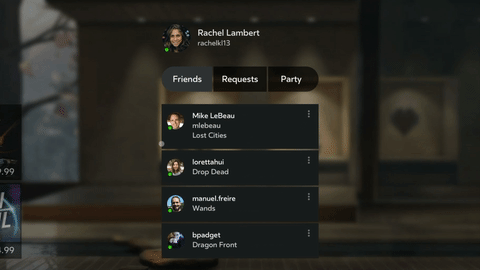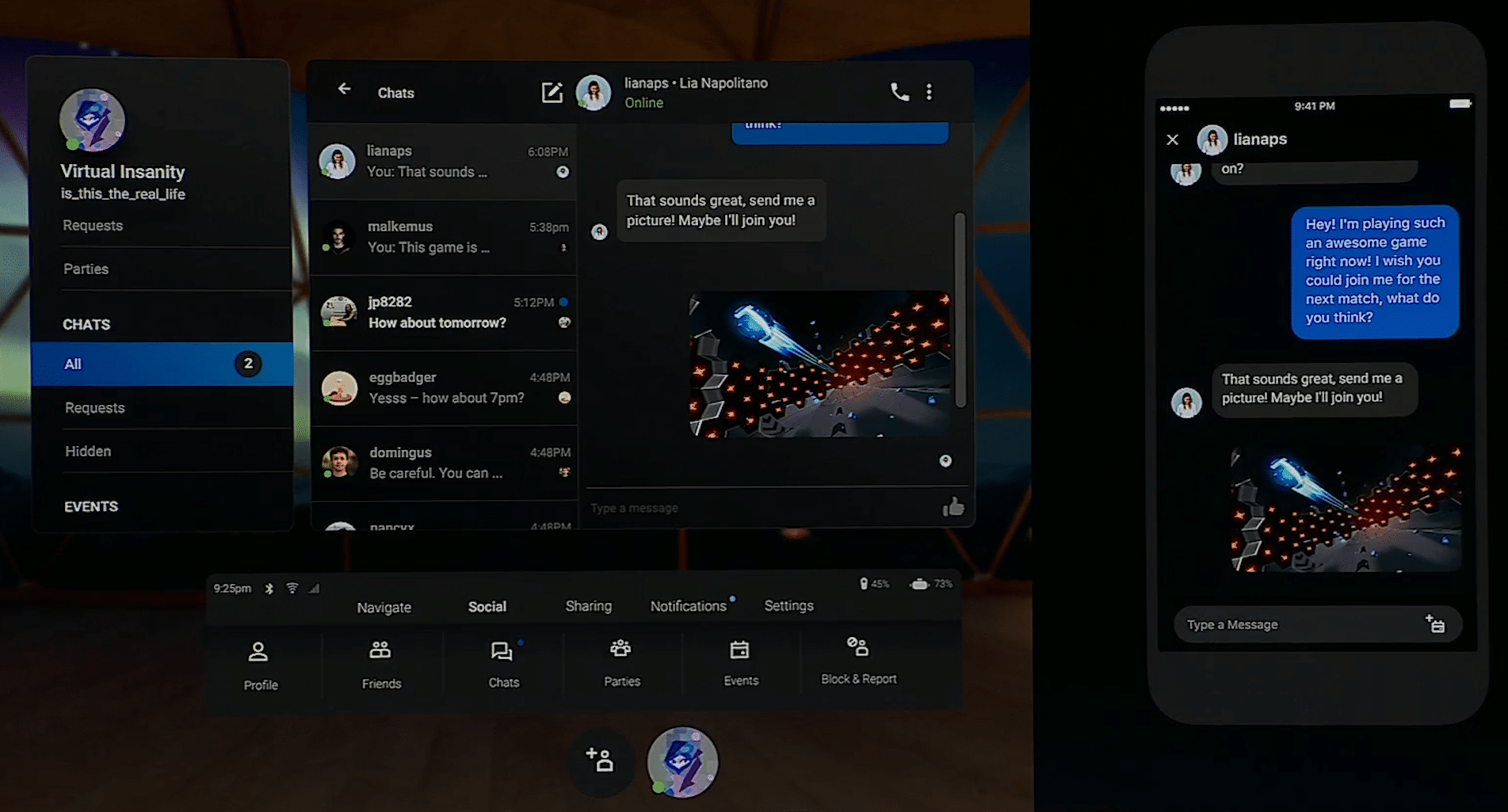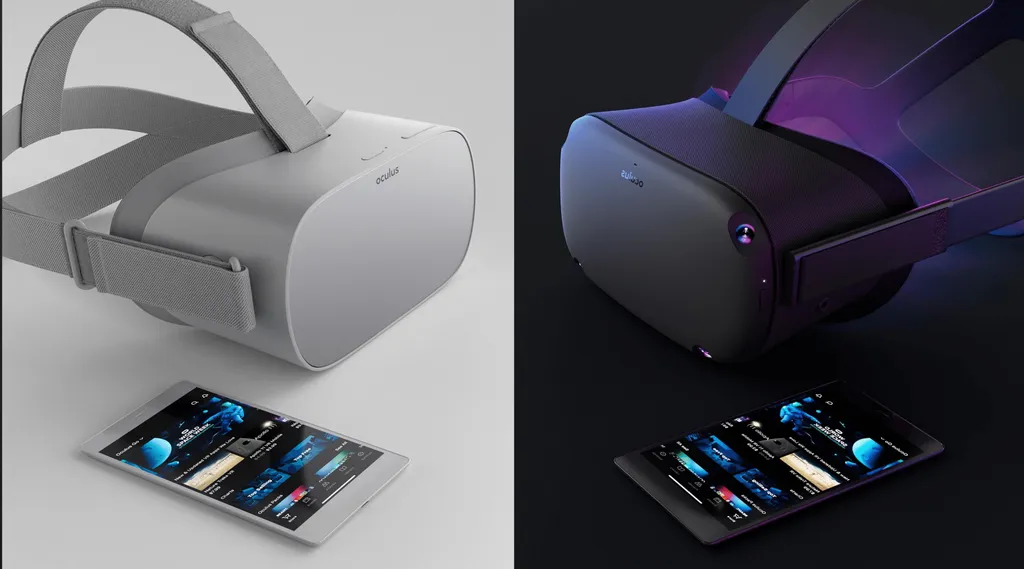When sending an Oculus party invite to a friend who isn’t in VR, they will now receive a notification to their phone. If this notification is accepted, they will auto-join the party upon putting on the Quest.
This improvement won’t mean anything to those who choose not to have a Facebook account, of course. Without an account you can use an Oculus headset and runs all apps (barr Facebook’s own social Venues)- but you can’t use platform level social features like inviting to game, events, or this party system.
On PC VR platforms like Rift and SteamVR, friends can easily organize play sessions using background social apps like Discord or Skype. But Oculus Quest is a console-like system with no access to those platforms.

Say your friend gets an Oculus Quest and you want to play together. To be able to talk even when not in a game’s session, you’d need to use the Oculus Party system, which works much the same as other gaming platforms. While in VR, you’ll be on a persistent voice call with a small group of your Oculus headset owning friends.
The obvious problem here is that most of the time your friends probably aren’t in VR. So this change, rolling out in software v15, means that when you invite a friend the notification will be sent to their smartphone via the Oculus app.
When they accept that notification they’ll be prompted to put their headset on, and when they do they’ll automatically be in the Party, on the voice call.

Facebook did add cross-device text chat to Oculus back in December, so you aren’t entirely cut off from Oculus friends when they’re in the real world. But typing in current virtual reality systems is an arduous task, and a Party invite gives a quick path to voice communication, which VR suits much more than text.
If it works as described, this small change should help to reduce the friction of coordinating a multiplayer game on Quest- a crucial puzzle that could currently be holding back the potential success of developers of co-op and small scale multiplayer games made for friends.
Of course, this social friction is essentially Facebook’s own decision- letting platforms like Discord onto its standalone headset could solve it too.


























